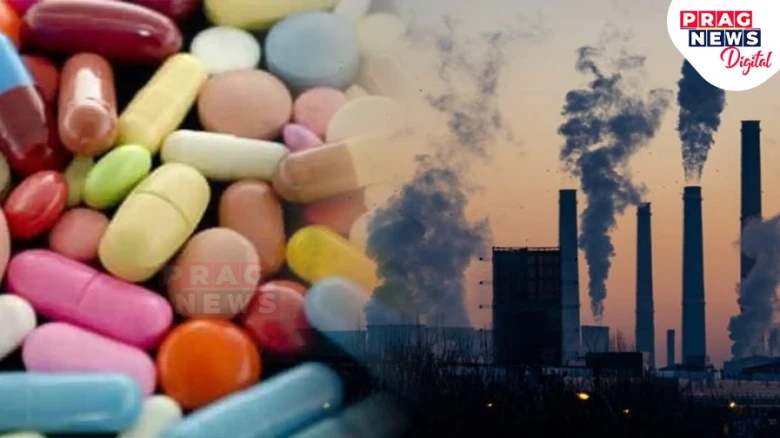Antibiotic resistance increased in tandem with the levels of particle pollution...
Digital Desk: Curbing levels of harmful air pollution levels may help in lowering antibiotic resistance, according to the first comprehensive worldwide examination of potential connections between the two, which was published in The Lancet Planetary Health journal.
In a study that was just released in the journal Lancet Planet Health, researchers discovered a link between these two disparate events. The researchers developed a model to examine levels of antibiotic resistance and PM2.5 air pollution levels in 166 different nations. PM2.5 is also referred to as particle pollution or particulate matter pollution.
According to the study, there is a clear association over time between high levels of PM2.5
air pollution and high levels of antibiotic resistance. Antibiotic resistance increased in tandem with the levels of particle pollution.
The
US Environmental Protection Agency defines particle pollution as a mixture of solid and liquid droplets that are floating in the atmosphere. It can seem like smoke, soot, dust, or dirt. Plants that burn coal or natural gas emit particulate pollutants. It can also be produced by vehicles, agriculture, unpaved roads, building sites, and wildfires.
Antibiotic resistance sometimes referred to as antimicrobial resistance or AMR, occurs when a specific pathogen, such as a bacterium, parasite, or fungus, builds a tolerance to a certain medication, rendering it ineffective in treating those diseases.
Antibiotic resistance has grown to be a major issue globally, speeding up at what some scientists call "an alarming pace" and adding an estimated 700,000 fatalities annually. Antibiotic resistance is viewed by the UN as a "fundamental threat" to the health and security of everyone on Earth.
According to scientists, most antibiotic resistance is brought about by overprescribing or improperly utilizing antibiotics, poor infection control in hospitals, excessive usage of farm animals, and inadequate sanitation. However, according to the authors of the present study, these activities cannot fully explain the issue.
According to the study, every 1% increase in air pollution is associated with increases in antibiotic resistance ranging from 0.5% to 1.9%, depending on the disease. The study examined nine bacterial pathogens and 43 different types of medicines.

Leave A Comment